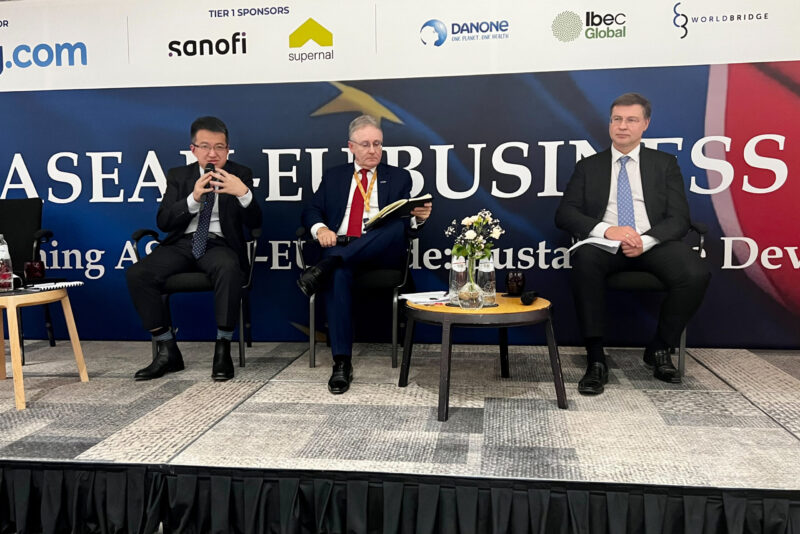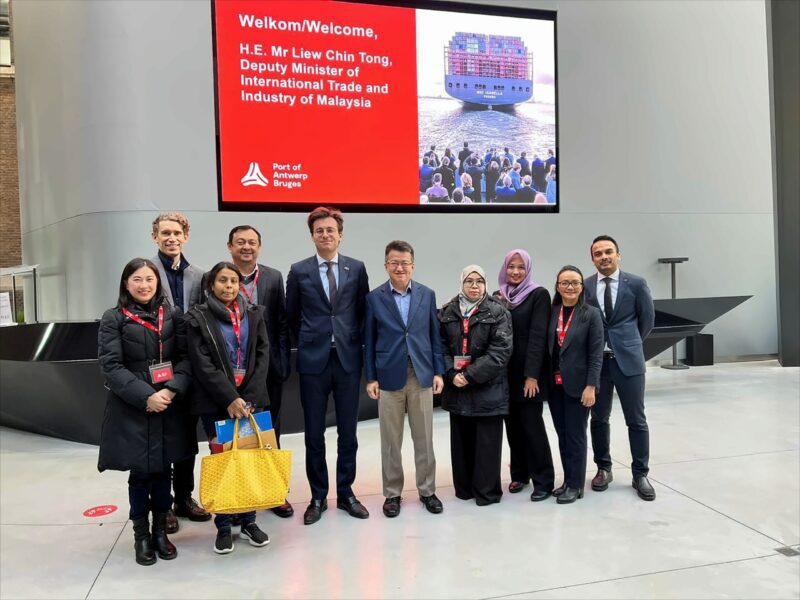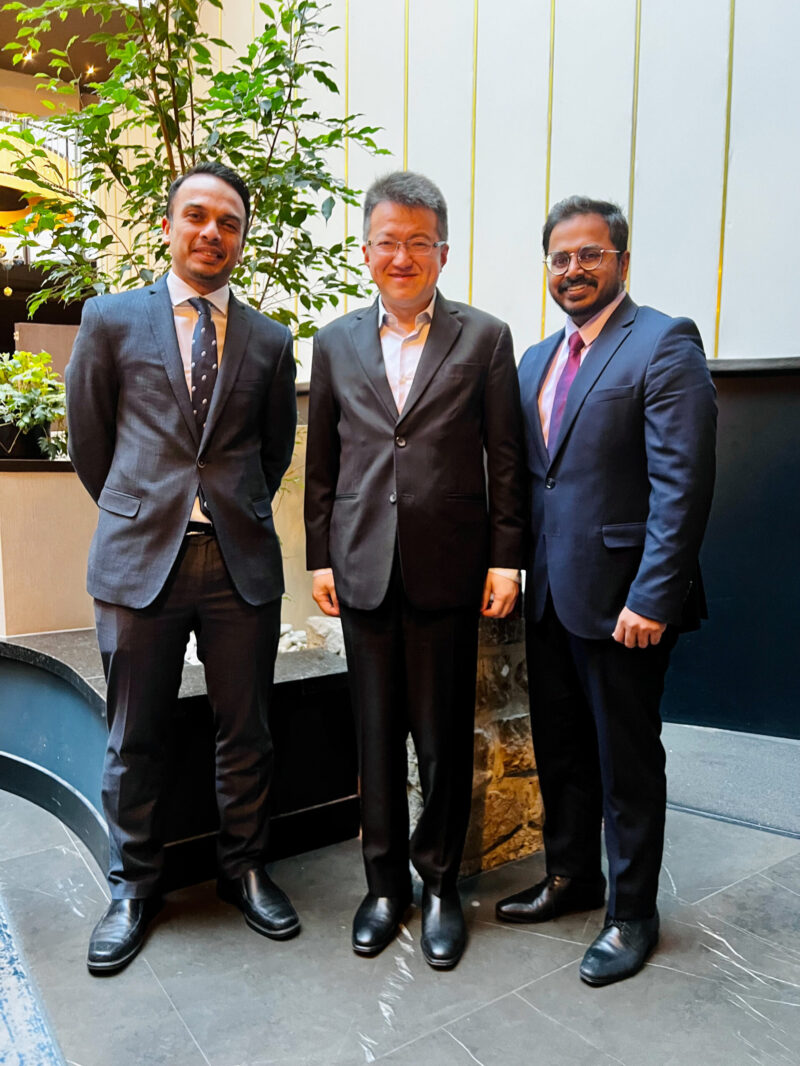
This site
is mobile
responsive

YB Liew Chin Tong, Malaysia’s new Deputy Minister at the Ministry of International Trade and Industry (MITI) recently had a working visit to Brussels, Belgium from 13 to 15 December 2022 in conjunction with the ASEAN-EU Business Summit.
YB Liew was invited to be a panellist during the fireside chat session of the summit, together with H.E. Valdis Dombrovskis, Executive Vice President and Trade Commissioner of the European Commission.
During the summit, panellists and participants discussed the trade and investment performance between the Association of Southeast Asian Nations (ASEAN) and the European Union (EU), as well as key challenges faced by ASEAN member states in their quest towards ASEAN integration.
The MITI Deputy Minister took the opportunity to address some of these matters during his fireside chat with H.E. Valdis Dombrovskis. YB Liew highlighted a few salient points, namely: that trade and investment have always been key pillars of the ASEAN – EU relationship and that there is room for both ASEAN and the EU to intensify efforts towards greater cooperation.
He said Malaysia welcomes initiatives by the EU to engage the Indo-Pacific region in establishing a more inclusive multipronged and robust partnership between the EU and the region, through the ‘EU Strategy for Cooperation in the Indo-Pacific’.
A Time for Opportunity
Against the backdrop of ongoing geopolitical tensions such as the Russia-Ukraine war and the US-China Trade war, this is a time of great opportunity for the EU to leverage its partnership with ASEAN.
Of note is that though trade volumes between ASEAN members (intra-ASEAN trade) have increased, contrary volumes between ASEAN and non-ASEAN countries (inter-ASEAN trade) have decreased. Instead of viewing this as a gap towards ASEAN integration, the EU should see this as an opportunity, especially in building institutional capacity in the area of investment, human capital, sustainability, and technology.
YB Liew also addressed talks leading to a free trade agreement (FTA) between Malaysia and the EU. The MITI Deputy Minister acknowledged that negotiating the EU-Malaysia Free Trade Agreement is a lengthy and time-consuming effort. As a stepping stone towards a full FTA, YB Liew suggested that both parties move towards formalising a quick-win solution such as Trade In Goods, rather than wait for a comprehensive framework that may take longer to negotiate and bring to fruition.
During YB Liew’s working visit to Brussels, MIDA Frankfurt introduced its team to the new MITI Deputy Minister and briefed him on MIDA’s roles and functions, its key promotional activities throughout 2022, and proposed programmes and activities for 2023. YB Liew expressed his excitement to meet with MIDA’s top management to discuss strategies for boosting the flow of foreign direct investments (FDI) into Malaysia.
The Malaysian Investment Development Authority (MIDA), as the leading investment promotion agency of the Malaysian Government, focuses on attracting investors from the EU, backed by its MIDA Frankfurt office in Germany.
The Power of Ports
Before returning to Kuala Lumpur, YB Liew visited the Port of Antwerp–Bruges International (PoABI). PoABI is the second largest port in Europe after the Port of Rotterdam in the Netherlands.
Strategically located between two major ports in Malaysia – Port Klang in Kuala Lumpur and Penang Port in Pulau Pinang – Lumut Port in Perak is seen by PoABI as having enormous potential to become one of Malaysia’s largest ports, driven by growing demand and growth in the logistics sector.
In October 2022, Perbadanan Kemajuan Negeri Perak (PKNP), representing the Perak state government, announced its plan to partner PoABI towards establishing the Limit Maritime Industrial City (LuMIC) in Manjung, Perak. PKNP and PoABI expect to invest around RM72 billion for the development of LuMIC over the next 25 years.
PoABI’s partnership with the Perak state government is aimed at developing a sustainable port cluster, which will include port management, analysis and implementation, as well as investment and training programmes.
By end of November 2023, PoABI and the Perak state government will form a Port Development Company to kickstart Phase 1 of LuMIC. YB Liew was briefed about the agreement between PKNP and PoABI to leverage POABI’s expertise to develop an economic hub in Lumut Port in line with the Perak state government’s economic aspirations.
Separately, PoABI has agreed to work together with MIDA Frankfurt to promote Malaysia as an investment destination to PoABI’s existing clients. YB Liew said the presence of PoABI will increase the confidence of more investors to consider Malaysia as their next investment destination.

YBTM highlighted on the need for a closer Asean-EU’s cooperation. Amongst YBTM’s points during the fire chat session at the ASEAN EU Business Summit was that the EU and Asean should work closely together to ensure that trade and investment will help creating a middle class across the region.

MIDA Frankfurt took the opportunity to introduce the team and briefed YBTM about MIDA’s role and functions, key promotional activities throughout this year and MIDA Frankfurt’s proposed programmes/ activities for next year.